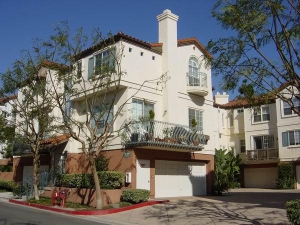2018

New Legislation for 2018
shunter@hunterlaw.net / 0 Comments /New Legislation for 2018
By Scott A. Hunter, J.D.
The California legislature has enacted new laws that apply to homeowner associations. This year a few laws were passed which directly affect homeowner associations. These laws are effective January 1, 2018, or are already effective.

Assembly Bill 634 – Solar Installations on Common Area Rooftops.
This new law revises California Civil Code Section 714.1, Civil Code Section 4600, and adds Civil Code Section 4746. This new law is effective January 1, 2018, and firmly supports solar energy. This law states that homeowners may install solar energy systems in the common area, including on common area roofs. Under this law, owners can install solar energy systems on common area roofs. This applies to condominium associations and other associations with common shared roofs. Additionally, the law states that your association cannot require the approval of other owners before the rooftop or other common area solar installations are approved by your association.
Under this new law, your association must require an owner who is requesting a solar system to notify each unit owner in the building, on which the installation will be located, of the application to install solar on a common area or shared rooftop.
Additionally, your association must mandate that the owner and each successive owner be required to have homeowner liability insurance at all times, and provide your association with a required certificate of insurance within 14 days of approval of the installation, and each year thereafter.
Your association can also require the homeowner to submit a “solar site survey” showing the placement of solar energy systems to determine usable solar roof area. Your association may require that the “solar site survey” be prepared by a licensed contractor or the contractor’s registered sales person. The “solar site survey” must also include a determination of the equitable allocation of usable solar roof area among all owners sharing the same roof, garage, or carport.
Your association may also require that the owner and each successive owner of the solar system be responsible for: (A) the costs for damage to the common area, exclusive use of the common area, or the units resulting from the installation, maintenance, repair, removal, or replacement of the solar energy system, and (B) the costs for maintenance, repair and replacement of solar energy systems, until it has been removed, and for the restoration of the common area, exclusive use of the common area, or the unit after removal. Your association may also require that the owner with solar installation disclose to prospective buyers the existence of the solar energy system of the owner and the related responsibilities.
In addition, this new law clarifies that an association has the authority to impose other reasonable rules. Some additional rules to consider include requiring the owner to sign an agreement which can be recorded in the office of the recorder. This will help notify future owners of the solar installation and make them legally responsible for the solar installation, maintenance, and damage.
Now is the time to update your rules and regulations regarding solar installations. If reasonable solar installation rules are not in place, it may create confusion and liability for your association.
Senate Bill 407 – Political and Non-Commercial Solicitation.
This new law adds new Civil Code Section 4515. This law states that it is intended to:
“. . . Ensure members and residents of a common interest development have the ability to exercise their rights under law to peacefully assemble and freely communicate with one another and with others with respect to common interest development living or for social, political, or educational purposes.”
This law allows members and residents to:
(A) Peacefully assemble or meet with members, residents, and their invitees or guests for the purpose of discussing common interest development living, association and public elections, legislation, initiatives, referendum, or recall processes;
(B) Invite public officials, candidates for public office, or representatives of homeowner organizations to meet with members, residents, and their invitees or guests and speak on matters of public interest;
(C) Use common area, recreational halls, clubhouses, or individual homes to meet for the purposes of (A) and (B) above;
(D) Canvas and petition the members, the association board, and residents for the activities described in (A) and (B) above;
(E) Distribute or circulate, without prior permission, information about common interest development living, association and public elections, legislation, the initiative, referendum, or recall processes, or other issues of concern to members and residents.
This new law allows non-commercial, political, and similar activities to be conducted in your association’s common areas and within the homes in the development.
Members or residents may not be required to pay a fee, make a deposit, obtain insurance or pay insurance premiums in order to use the common area facilities for meetings as discussed in this new law. A $500 penalty can be imposed against associations for each violation of this law.
Senate Bill 2. $75 – Additional Recording Fee
This law adds new Government Code Section 27388.1. This law is effective January 1, 2018. This law creates a new mandatory $75.00 fee when recording most documents in the county recorder’s office. This $75 fee applies to liens, lien releases, abstracts of judgment, etc. This fee can be passed onto the delinquent owner. The $75 fee will also apply to the recording of new CC&Rs, as well as most documents recorded by your association. The new law is to raise additional funds for affordable housing.
Assembly Bill 1412 – Mixed Use Liability Protection
The first part of this law amends Civil Code Section 4041 to provide that if an owner fails to state which address or addresses notices from your association are to be delivered, then your association may send notices to the last address provided in writing by the owner (or if none was provided, then to the property address).
Additionally, this law amends Civil Code Section 5800. Under the prior version of law, volunteer officers and volunteer directors, in residential common interest developments, received some protection from liability. Generally, volunteer officers and directors are not personally liable for claims or lawsuits which are above the limit of your association’s officers and directors policy, if all of the following conditions are met: (1) the officer or director was acting within the scope of his or her duties; (2) the officer or director was acting in good faith; (3) the officer or director was not willful, wanton, or grossly negligent; (4) your association has both general liability insurance and officers and directors insurance, at the minimum required amounts. Under this new law, the protections now also extend to mixed use developments (developments that are both residential and commercial in nature).
Note: Most of the laws in this newsletter apply only to common interest developments (“CID”). If your association is not a CID, then the laws discussed herein may not apply to your association. This newsletter does not constitute legal advice. For specific legal issues, please seek legal advice from your association’s lawyer.

2018

Amending and Rewriting CC&Rs
shunter@hunterlaw.net / 0 Comments /Amending and Rewriting CC&Rs
By Scott A. Hunter, J.D.
How Old Are Your CC&Rs? Do your CC&Rs still give your association the guidance needed to manage your association? Outdated CC&Rs may be in conflict with current laws and practices, forcing boards of directors to constantly seek legal counsel as to whether certain provisions are still valid or enforceable.  Such obsolete CC&Rs offer owners and boards very little guidance as to what should be done in day-to-day and critical situations. This newsletter will help you determine if your CC&Rs should be updated, amended or completely revised.
Such obsolete CC&Rs offer owners and boards very little guidance as to what should be done in day-to-day and critical situations. This newsletter will help you determine if your CC&Rs should be updated, amended or completely revised.
Statute Law Changes. The California Legislature has enacted many new laws over the last several years which supersede older CC&Rs provisions. These laws directly affect your CC&Rs and your association. The Davis-Stirling Common Interest Development Act (“Act”) was enacted by the legislature in 1984, creating and organizing an entire body of law which directly impacts owner associations. Since 1984, the Legislature has continued to do what we elected them to do—legislate by creating more laws. New laws are added to the books each year.
The Davis-Stirling Act was recently completely renumbered with some other changes throughout. Now would be a good time to amend your CC&Rs to be up to date with the new Davis-Stirling Act.
In addition to the Davis-Stirling Act, there have been significant revisions of other state and federal laws. For instance, the Federal Telecommunications Act of 1996 supersedes all CC&Rs in the area of satellite dishes. Any outdated CC&Rs should be revised to comply with this Federal law, yet allow the association to retain some control over the installation of satellite dishes.
Another example is a newer law which changes the way CC&Rs can be enforced. Under this new law, an association and an owner must attempt to resolve certain disputes before a lawsuit is filed. These new statutes supersede outdated CC&Rs, which should be amended or revised to conform to the new laws.
Case Law. Many court cases have reviewed the workings of associations and have provided guidelines as to what to expect in the future when interpreting certain provisions of your CC&Rs. This court guidance should also be integrated into your CC&Rs.
Practices of the Association. Many of your association’s practices have likely changed since the time it was created, such as the handling of insurance deductibles. Insurance deductibles have increased dramatically in order to help reduce the annual insurance premiums. Who pays this ever-increasing deductible? Are your CC&Rs clear on this point? CC&Rs are often silent or unclear on the issue. Do your CC&Rs allow your association to reduce the number of its insurance claims by providing the option for your association to pay an insurance claim instead of submitting it to the insurance carrier for payment?
Clarify Maintenance Responsibilities. Who is responsible for what? Does your association maintain the balconies, or are balconies the responsibility of each owner? Is the balcony deck actually a roof that your association must maintain? Is the drywall part of the unit, and therefore the responsibility of the owner, or is it part of the common area? Who is responsible for the mold? Your CC&Rs should address and clarify all of these issues.
Stronger Enforcement. Do your CC&Rs allow your association to suspend an owner’s pool and clubhouse
privileges if the owner fails to pay monthly assessments or is violating other rules? Some communities are
experiencing problems with difficult tenants. Most CC&Rs can be strengthened to have greater enforcement options against non-complying tenants and their owners.
Discriminatory Language. Do your CC&Rs contain language that has now been determined to be illegally discriminatory? Discriminatory language includes not only age, gender, and race, but also less-publicized discrimination based upon familial status (discrimination against children), etc.
Removing Irrelevant Language. Original CC&Rs often contain language regarding the developer or “declarant” of the project, giving the developer extra voting power, advertising rights, etc. When the developer is no longer involved, this language becomes obsolete and should be removed. Some original CC&Rs also contain language about adding or “annexing” more land to the project. If this is no longer applicable, then this language can also be removed.
Responsibility for Water Damage. Today, water damage can be the catalyst for very large and contentious disputes. Who is responsible when the upstairs owner’s washing machine hose breaks and floods the downstairs unit? An owner’s own insurance policy will often deny the claim and force the association to fix the damage or submit its own insurance claim. Ambiguous CC&Rs should be revised to clarify who is responsible for water damage.
Security. Courts have held associations liable for harm caused to owners by criminals because of lack of adequate security. Courts have also found that an association can reduce liability for such criminal conduct or lack of security if the proper language is in the CC&Rs.
Neighbor-to Neighbor Disputes. Many issues that arise in associations are best handled between the disputing owners. These issues often include barking dogs, loud parties, trees hanging over one patio to the next, and other issues. The CC&Rs can be amended to give your board the authority to let the disputing owners work out their problems without direct involvement of your association, saving time and money. If the problems include a CC&Rs violation, then the owners can enforce the CC&Rs against the other owner without involvement of your association. Such an amendment will save the precious resources of your association and will let your board concentrate on problems that affect most or all of your community.
Election Changes. Your association’s bylaws can be changed to eliminate the annual meeting or eliminate any quorum requirements, thereby saving your association’s precious resources. Often, too few owners attend the annual meeting for a quorum, so another meeting must be called with time, money and other resources wasted.
A Complete Document. CC&Rs should be complete, consistently providing accurate guidance whenever consulted by your association. Reliance on outdated documents will often create confusion and lead your association down the wrong path. Ideally, CC&Rs should be reviewed for major revisions every 8 to 10 years, or sooner if there are significant changes in the law. The CC&Rs should not be stagnant, but should be a living document which provides flexibility and revitalization for your community.
The Amendment Process. Most CC&Rs can be amended by 51%, 67% or 75% approval of the owners. For those associations with an approval requirement of 67% or 75% (called “super majority”), the courts can provide assistance in amending the CC&Rs after a failed attempt to do so. In some circumstances, it may also be necessary to obtain City or County approval for certain amendments. Your association should seek legal counsel to determine if anyone other than the owners must approve amendments to your CC&Rs.
Typically, your association should give owners 30 to 90 days to return ballots. If not enough owners are returning ballots, then your association will have time to resend ballots to owners who have not responded.
Rewriting Pays for Itself. Rewriting CC&Rs may pay for itself and actually give your association a financial boost and allow your association to more than recoup the costs associated with rewriting your CC&Rs. Most older CC&Rs cap the interest charged on delinquent assessments (dues) at 6% per year and set an artificially low late charge of $5.00. Current laws allow the CC&Rs to be revised to increase the interest rate charged on delinquent assessments to 12% per year and the late charges can be increased to $10.00 or 10% of the delinquent assessment, whichever is higher. These changes may offset the costs of rewriting the CC&Rs and may also help to place your association in a better financial position.
Amending Other Documents. It may be helpful to amend the bylaws, rules and other governing documents of your association along with the CC&Rs to ensure these governing documents do not conflict with each other. Legal counsel can advise you in this area.
For information on amending your CC&Rs or Bylaws, please call us at (877) 322-0410, or email us at shunter@hunterlaw.net.

2014

Welcome to Hunter Law’s new Website
shunter@hunterlaw.net / 0 Comments /We are experts in Community Association Law.




